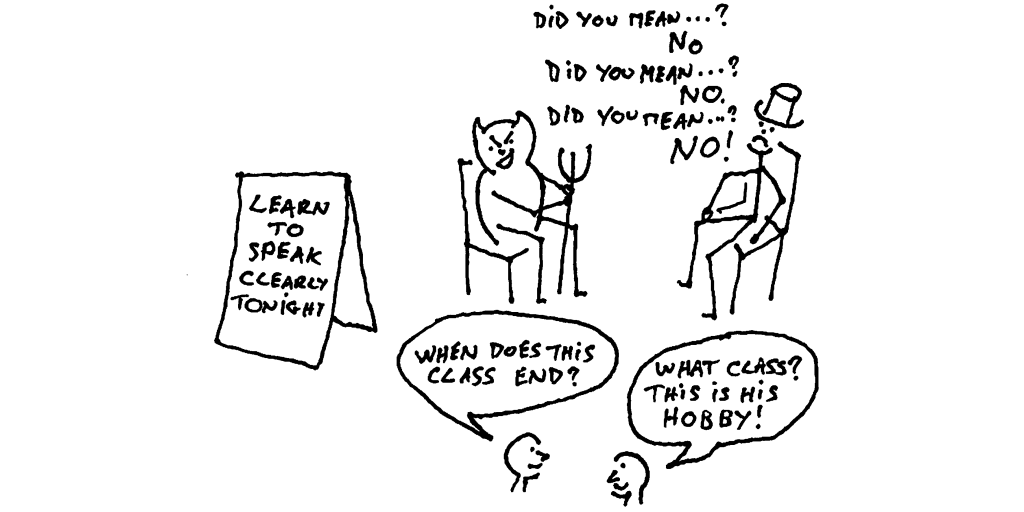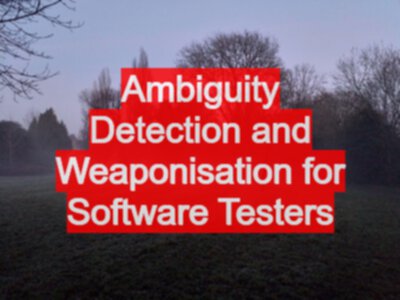TLDR; You can learn to detect ambiguity and then weaponize it for your testing. Do you think I meant that? What else could I mean?

Detection
Can you identify ambiguity in written, verbal and visual communication? If so then you can apply that skill during your testing to give you ideas of where in an application to test.
In the places that you perceive ambiguity, when you test there, you might find an easy win due to different expectations between project staff e.g.:
- stakeholders believe they asked for Y
- development team thought they X
- managers push for Z
- etc.
Weaponization
You can also use your skill to improve your own communication and avoid ambiguity:
- make any issue or defect reporting clearer
- have concise statements of risk that become harder to ignore
- avoid ’triggering’ development staff when you talk about potential system malfeasance
- etc.
And you can expand on the identification of ambiguity to the harnessing of ambiguity in your testing:
- Do you perceive the validation rules as ambiguous? Can you create data that validates but should not?
- Could you traverse the entity states ambiguously? Can you move the entity into states that it should not validly enter ‘yet’?
- etc.
And if you feel particularly brave then you can harness this in your test process:
- Write your ’test strategy’ and ’test plan’ such that it gives you more flexibility than ’they’ want you to have.
- Communicate ‘risks’ and ‘issues’ in such a way that you generate increased fear and concern about the fellow to achieve your aim of having it worked on.
- etc.
Development & Homework
I estimate that there exist well over 3, and possibly over 11 million, different ways to develop your ambiguity detection and utilization skills.
On the assumption that you read this at home, relaxing in your easy chair, and reflecting on your testing skill development, I suggest that you could:
- find some politician speeches on the YouTube and listen for ambiguities
- in speeches, politicians often provide high level generalizations which sound specific in intent, but lack clarity of end results and have no implementation details
- find some politician interviews on the same or similar video platforms and listen for ambiguities
- do they answer specific (Yes/No) questions with long answers? Do you think they tried to avoid the question? Did they they avoid ambiguities in the question? What can you read into their answers? What intent might stand behind their answer?
Look for multiple interpretations - when you find something that they ‘might’ have meant, look again at what else they might have meant, and then again, and then again. I suggest you stop when your answer reveals to you that they form part of an alien lizard race conspiring with the Illuminati to achieve world domination, because that model probably does not match reality.
If you want to antagonize your family then play the “did you mean?” game. For their every utterance where you detect ambiguity you reply “Did you mean …?” and supply an outlandish alternative meaning. Advanced players might consider not waiting for a response and instead chain “Or did you mean…?” with additional alternative interpretations in rapid fire. For maximum effect, you should continue to play the game even when faced with slammed and locked doors, in the modern world, you can continue to contact your family via up to date communication channels such as WhatsApp, FaceBook and SMS messaging.
I harbor no doubt that you can find your own ways to practice these skills.
Find your own ways to practice these skills.







